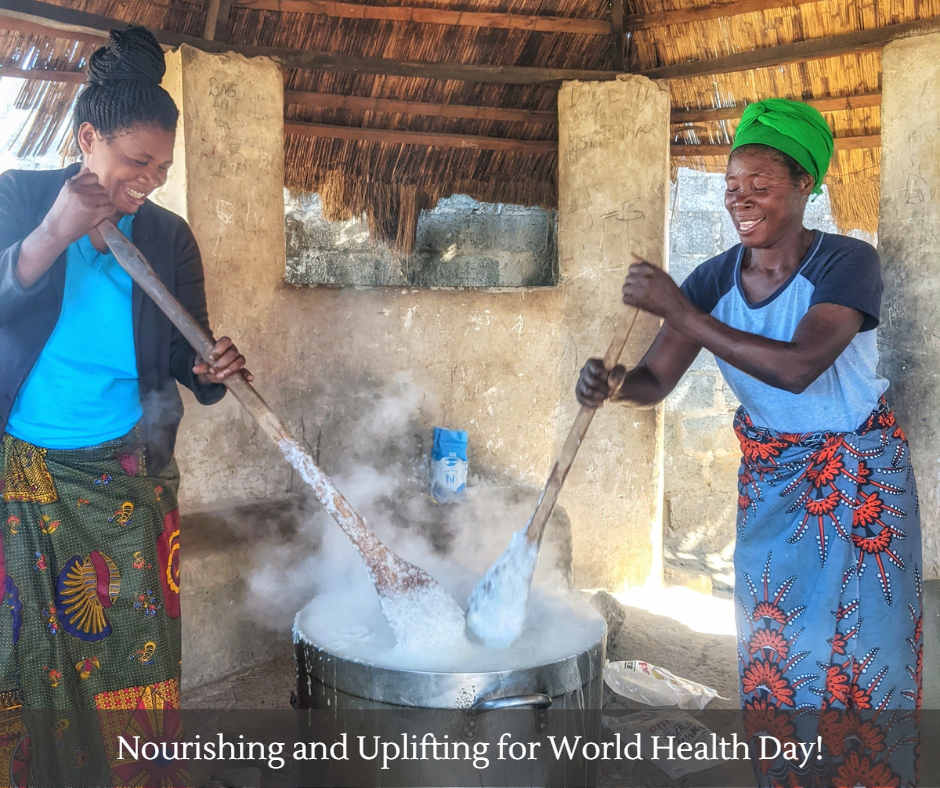World Health Day
Kafwa community health workers cooking lunch for students at Zamtan Community School of Peace
Today, on World Health Day, we uplift the important work of our colleagues as they advocate for the health, education, and empowerment of the women and children around them.
When we consider what it means to be healthy, it becomes clear that many issues are rooted in nutrition. If a mother or young child is malnourished, the risks of stunting or underdevelopment are much higher. If a patient receiving medicine cannot afford or access food, their medicine may not work properly, or make them feel even sicker. Barriers to access nutritious foods are barriers to healthy families and communities.
Our colleagues in Africa see this issue and have identified ways they can address it in their communities. At the community centers in Malawi and the Luapula province of Zambia (and soon the new center in the D.R. Congo), gardening programs have begun in earnest, bringing community members together to clear land, plant crops, and share in the harvest. These serve as “outdoor classrooms”, where people can take what they’ve learned home to start their own small gardens. Our colleagues have also built garden sheds to store tools, seeds, and future harvests that can be distributed to clients or community members during parts of the year that have little food available.
For years in the Copperbelt province of Zambia, the health workers have been tending to school gardens that augment the school lunch programs, adding nutritious greens to support healthy development. Now, they are looking at opportunities to expand their gardens to provide more food for some of their home-based clients who may be too sick to access it themselves.
Hunger and malnutrition are major players in barriers to health, and we are grateful that our colleagues continue to provide improved access to nourishment for children and families, and loving support for the most vulnerable.

